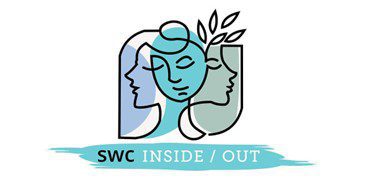
Welcome to SWC Inside/Out, an interview series with members of the Seattle Women’s Commission and the community members who inspire us. This is the fifth installment of the series and we are delighted to interview former Seattle Women’s Commissioner and maternal health expert, Rokea Jones. Read on to learn more about Rokea’s perspective on reproductive justice, maternal mortality and more.
It’s clear you are passionate about this work. How did you originally get involved in the field and how do you maintain a sense of hope?
I have had the privilege of working directly with families through my direct service work and through community organizing and I find hope in the small wins. Helping one family at a time but still making a huge impact in that one family’s life has always felt like proof that I am in the right place, doing the right thing and I feel hopeful and inspired by those connections. Watching the field of community health workers dedicated to reproductive justice and maternal health efforts grow gives me great hope. Lots of folks are dedicated to supporting families and healing dysfunctional care systems and it inspires me to keep going.
What does reproductive justice mean to you? What are some of the key disparities you think are important for the public to understand?
I choose to carry the principles of the official definition of reproductive justice. I feel a great sense of pride and gratitude to the 12 African-American women, mothers, scholars, educators, community health workers and community leaders that gifted us this definition. I believe reproductive justice to be “The human right to maintain personal bodily autonomy, have children, not have children, and parent the children we have in safe and sustainable communities.” I recall the following articulations from work done by the organization Ancient Song: Reproductive justice is by nature, people of color led, intersectional, focuses on the right to control your own body and parent with dignity, seeks to dismantle barriers to accessing care and is collectivist and structural focused.
Maternal mortality rates in the US have more than doubled since the 1990s. What are some of the primary causes you attribute this to?
The disparities we see are largely systemic in nature fueled by provider based issues like provider bias and burnout. The systemic oppression of Black and Indigenous families has been ongoing and not as thoroughly documented although there is a ton of information to this point. When we compare the United States to other countries of similar economic status, we see the US fall to the bottom in terms of access and quality of care, making this an everyone issue. The latest data demonstrates that the American healthcare system is failing all mothers and birthing people. Studies show that health insurance or the lack thereof has a huge impact on quality of care, not just access. A study was done looking at hospitals that served high Medicaid recipient populations versus those that don’t. This 2018 study, conducted by Dr. Eileen Lake and her colleagues, showed hospitals serving high Medicaid populations were understaffed and patients were not receiving or missing parts of their care plan which includes things like the administration of medication and discharge care information. Our local hospitals and health institutions are largely understaffed and overburdened and this is due to the capitalist drive to erase community care models such as those demonstrated in the regulation of midwifery care and birth centers. The most glaring issue is that the American healthcare system has been inherently racist since its inception, and this is demonstrated in many ways but one that is very interesting to me, is that nursing students are still taught to care for patients based on racial stereotypes.
What are some of the most common challenges BIPOC mothers face navigating care for themselves and their babies postpartum and how does your work aim to address these challenges?
For our region, BIPOC birth outcomes vary between BIPOC groups. There are huge disparities amongst BIPOC groups and this can be assumed to be attributed to the differences in economic status. Black and Indigenous families still face a huge barrier in being heard and respected in hospital care during the perinatal period. We still see many accounts of white and non-white individuals facing the same medical challenges, however the two populations are being treated differently.
From a policy perspective, what solutions would you propose to make an impact on maternal mortality rates in general, and the disproportionate rates for BIPOC birthing people in particular?
There are some huge legislative efforts being done by midwives and doulas that we all need to get behind. The Doulas For All Coalition just had a huge win, gaining the highest Medicaid reimbursement rate for doulas in the country. As that work continues more needs to be done to design a more successful reimbursement process for doulas in Washington State. Doulas are a protective factor for families. This coalition work allows us to expand services for families.
What advice would you give to community members who want to get involved and make a difference on this issue? Do you have resource recommendations (websites, groups/orgs, research, etc.) to learn more?
Follow organizations and businesses like Sister Song, Surge Reproductive Justice, BLK Mamas Collective, BLKBRRY LLC, Global Perinatal Services, Open Arms Perinatal Services, and the Black Infant Health Program of Pierce County.
What are you reading, watching, and/or listening to right now?
I’m reading a book called “Fully Human: 3 Steps to Grow your Emotional Fitness in Work, Leadership, and Life” by Susan Packard.
Other than that I’m watching Anime that usually talks a lot about spiritual principles.
I like to listen to a podcast called, Is My Aura On Straight with Aycee Brown or one called, The Model Health Show with Shawn Stevenson.
More about Rokea
Rokea’s work spans over 16 years of experience as a birth worker, educator and community advocate. Rokea holds a Masters degree in Public Administration. During the course of her career, her work has spanned from birth, early learning and home visiting services to food access, climate justice, housing, and violence prevention all the while working with youth and families. Rokea is a Full Circle Doula, Certified lactation educator and peer counselor as well as an Infant Mental Health specialist (IMH-E®). Rokea is founder of the BLK Mamas Collective, and lead organizer for the Seattle Black Maternal Health Week Celebration. She is a grateful and enthusiastic member of the Doulas For All coalition.
More about the Seattle Women’s Commission
The Seattle Women’s Commission advises the Mayor, City Council and city departments on issues that impact the women of Seattle. The Commission identifies areas of concern and recommends policy and legislation, provides feedback and opinion on issues of city and state budget, and acts as a liaison between the women of Seattle and City government.



